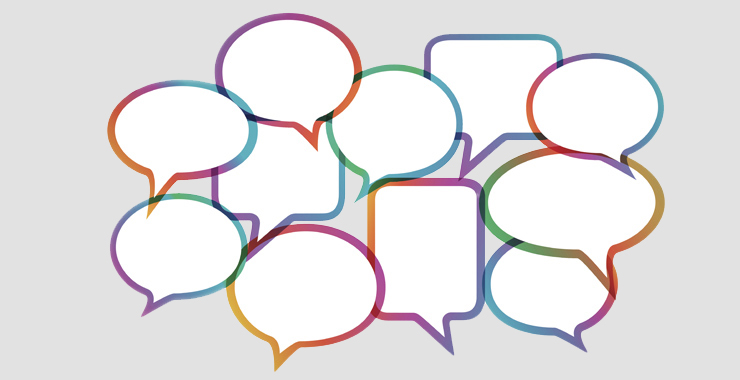As a poet, I find myself particularly sensitive to words. This is bit ironic as I have always thought of myself as someone who is quite blunt. When my son was young, I taught him that the bad words were not the swear words you might expect, but words like “retard,” “lame,” and so on. And yet, speaking out about disability as a metaphor seems, at times, like a herculean task. The use of disability as a metaphor is deeply ingrained in our society-so much so that we no longer even know the derivation of words; that lame, for example, means an inability to walk.
It is such a shame that these metaphors paint people with disabilities in a negative way. Metaphors for all kinds of disabilities are everywhere. Probably the most common one is the metaphor which likens “crazy” to any action that is deemed evil or simply distasteful. Although “retard” is out of fashion, “moron,” “idiot,” and “imbecile” are common put downs. The history of these words in in itself interesting. These three words were scientific terms used by psychologists to diagnose different levels of cognitive disabilities, and they are strongly tied to the United States eugenics movement.
“Blind” is a metaphor I find equally pervasive: “blind date,” “blind submission,” “blind to the truth.” These are not metaphors only being used by schoolchildren; they infiltrate our media.
Perhaps the most telling use of the blindness as a metaphor was Nobel Prize winner José Saramago’s book, Blindness. Saramago was clearly only using blindness as a literary device. Yet, I could not help notice that it was the perfect example of how a metaphor can-and does-reflect perceptions of a population. In Saramago’s book, an entire population loses their vision. At first, they merely lose their ability to accomplish tasks such as good hygiene. Yet, as “blindness” overtakes the community, they lose more significant functions, such as to be empathetic and to govern. In the end, they lose their humanity.
Of course, this is all just a “metaphor” and not meant to be a reflection on blind people. However, the world doesn’t quite work that way. If we lived in a society that viewed blind people as equal to sighted people, the book-and the metaphor-would simply not be an issue. But we don’t; we live in a society that views blind people as scary, dirty, incapable of caring for themselves or others. In movies such as Get Out, blind people are still used as tropes for monsters. I had a profound realization of the depth of prejudice when someone who worked with blind people told me that Helen Keller was an “exceptional person” because “most” blind people were “dirty and undereducated.”
At first, when teaching students not to use disability as a metaphor, it can feel heavy-handed. Many students, even into college, are still using words like retard, wheelchair-bound, and lame, so to break young people of these habits is a big accomplishment. For teachers to decide they want to take on this endeavor, they have to look at their own language habits.
Even with my sensitivity toward disability issues, changing my own language took a bit of work. A simple example is in the following poem. In the first writing of the poem, I wrote:
Small animals in the garden.
Thirty segments of the heart
can split and repair.Winds may (or may not) exist.
This world is, at once, so beautiful
and so ugly.If I were blind
I wouldn’t have to see.
When I began to consider the last two lines, they seemed to hearken back to the same issues I had with the Saramago book. In this context, “I wouldn’t have to see” meant to symbolize that I could protect myself from the problems of the world, and yet, blind functioned here as a metaphor that felt inappropriate. Both deafness and blindness have come to stand for won’t hear or see, when they truly mean can’t hear or see. Ultimately, I simply changed “blind” in the poem to “blindfolded.”
I have heard it argued that attention to disability as a metaphor in writing or speech prohibits imagination or expression. I believe that the opposite is true. In questioning language that is outdated, clichéd, and frankly tedious, we challenge our students to think more deeply about saying what they mean and discovering more ways build vocabulary. This brings to mind the popular exercise about Shakespearean insults, which has the multi-level purpose of teaching kids about Shakespeare, expanding their vocabulary, and teaching them to move beyond curse words. In this way, students begin to navigate an extensive landscape of words and metaphors.
Image (top) via American Psychological Association
Jennifer Bartlett is the author of three books of poetry, a biography of the poet Larry Eigner, and co-editor of the anthology Beauty is a Verb: The New Poetry of Disability. She has had individual works published in Poetry, The New York Times, Brooklyn Rail, and many other journals. Bartlett has been a teacher for sixteen years. She began her teaching career as a NYC Department of Education teaching fellow and taught middle school and high school English for six years. She has subsequently taught poetry, literature and composition at Montclair State University, City University of New York, St. Mark's Poetry Project, Willie Mae Rock Camp for Girls, and the MS Society. Bartlett is a member of the Teachers & Writers Magazine Editorial Board.



